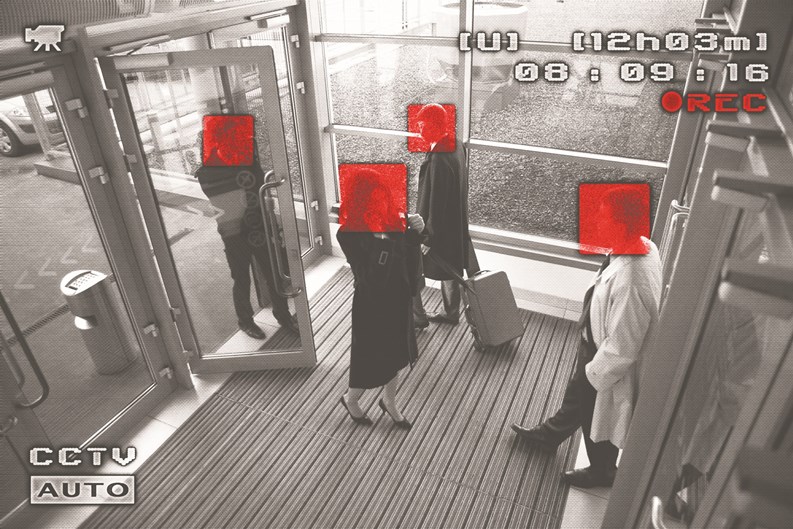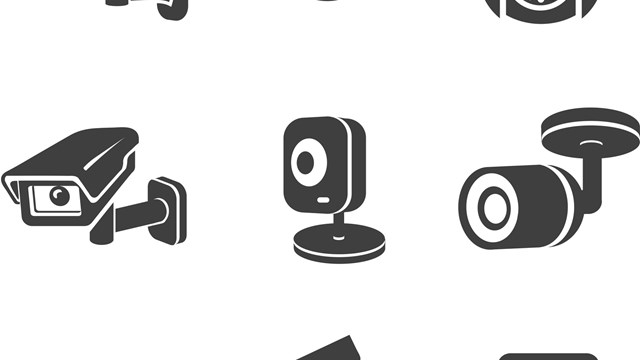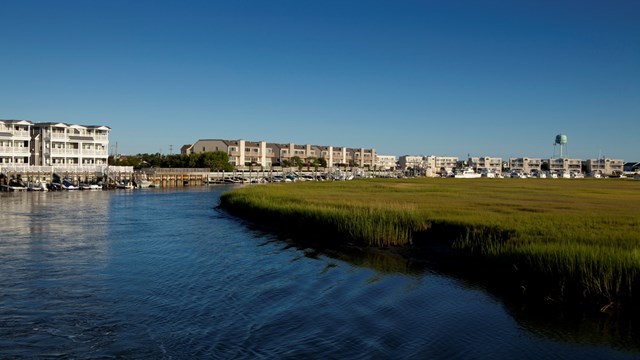Secure. The word has many meanings. According to Google definitions, it can mean “to fix or attach something to something else. It can mean to protect against threats or make safe. Or it can mean to feel free from fear or anxiety.” Perhaps that feeling of security is the single most important thing we can to feel in our homes.
Security is a major issue for condominium communities today. The choice to buy into a condominium or other multifamily community overseen by an HOA rather than a private home may even be based on the desire of the purchaser to have peace of mind that security concerns are being addressed on a community-wide basis. According to an article that appeared in CONDO.ca on-line, “Security was the number-one concern among people looking to purchase a condominium.”
The state of surveillance and security has come a long way over the past few decades. Where security issues used to rest on the employment of security personnel and perimeter fencing, today’s security arrangements are more hi-tech and complex. Along with technology has come an uptick in both legislation and litigation — much of it arising at the intersection of legitimate security concerns with equally legitimate concerns about propriety and privacy.
Walking a High Wire
While board members of condominium associations and HOAs are just as concerned with their security as the their fellow condominium members, they have to balance the legal issues that govern both the successful security apparatus of the community and the potential liabilities of the association.
“As a general rule, anyone can video [record] anyone else in a public space, no consent required,” says Scott Piekarsky, a partner at Piekarsky & Associates, a law firm located in Wyckoff. “It is legal to install cameras in all common areas where homeowners do not have a reasonable expectation of privacy under the Fourth Amendment of the US Constitution.” Interestingly, Piekarsky adds, “New Jersey law prohibits the videotaping and recording of another person, ‘whose intimate parts are exposed, or who is engaged in an act of...sexual contact without that person’s consent…unless sufficient notice was posted and the surveillance is for a lawful purpose.’”
One important aspect of surveillance law relates to audio recordings. While video recordings are legal in common areas as long as privacy rights of individuals are respected, audio recordings fall under federal eavesdropping laws and are strictly out of the question. “Video doesn’t fall under those statutes,” says Christopher Florio, an attorney with Stark & Stark, a law firm based in Lawrenceville. “As long as you are in a common space, even without someone’s knowledge, it’s fine.” In New Jersey, “You can actually sit outside somebody’s home on the sidewalk and videotape through their window and it’s perfectly legal. You are in a common space, and if you don’t pull down the shades, it’s on you. Where there is no reasonable expectation of privacy, you have to expect that you can be recorded.”
Do’s and Don’ts
So where can an association record, and where should it not? Some of this may seem obvious. As discussed above, cameras can indeed be placed in common areas. But occasionally that can become problematic. “Even though it isn’t mandated by law, posting notice signage about surveillance cameras is often a good idea,” says Piekarsky. “Conspicuous notice of surveillance can magnify a camera’s deterrent effect, making it less likely that individuals will engage in criminal behavior. And since signs clearly mark a public or semi-public area as under surveillance, individuals will be less likely to expect privacy.”
Florio concurs. “Any community will feel safer with a security system,” he says. “Sometimes it can create a false sense of safety,” that can lead to liability issues. But, “At least you have something if there is a criminal act, and perhaps can capture the image of the person who did it.”
Implementing a new security surveillance system can be more complicated than just hiring a contractor to install a bunch of cameras, however. “If [a surveillance] system didn’t originate with the original plans for the building or development,” says Florio, “the installation of one may require the approval of the condominium membership. We counsel clients when they move to a new community that there is a set budget that has all these common elements that one has to pay for. If the condominium board adds a new one, they need two-thirds of the members to approve it, which is a protection against the whims of the board.”
Dummy Cameras, Key Fobs and Tracking Cards
When it comes to the idea of installing fake or non-functional cameras to give the impression of robust surveillance, the short answer is: No, no, no! Universally, the one thing attorneys say is stay away from “dummy cameras.”
“This falls into the don’t-ever-do category,” says one legal pro. “If the owners believe it is real, a false sense of safety is created. If a duty is undertaken and due care is not employed and/or the neighborhood warrants it and reasonable care is not taken to protect the area and members/guests/other residents, the board will be found liable if it is the proximate result of their negligence.”
Florio agrees. “I don’t like to sound like a parent,” he says, “but the first question I ask the client is about their level of risk tolerance. Are you willing to potentially have enhanced the expectation of security? I tell the client they need to touch base with their insurance carrier. Under this scenario, if something were to occur, would they have coverage? The problem generally is that until there is a claim filed, they rarely get an answer, and that’s usually enough to indicate to them that dummy cameras are not a good idea.”
Kevin Oliver, a security technology consultant with GMC Electronics puts it even more bluntly: “We don’t even sell them, ever.”
In addition to high quality video cameras with or without security personnel, one of the most popular innovations in security and surveillance today are key fobs and security card access systems. “In many neighborhoods, boards are issuing key cards and key fobs,” says Piekarsky. “These devices can monitor when residents enter and exit a common area of a building or association. Another benefit of this kind of access technology is that if something were to happen—say an owner was to lose his or her access card, or the management company had to restrict someone’s access for whatever reason—all the manager has to do is go into the computer system and deactivate that resident’s unique key card or fob.”
That convenience has limits, however. For example, Florio points out that, “We cannot use these technologies to keep someone out of their home because of a violation — because they live there. But we can prevent them from using the common elements, such as the clubhouse or gym.”
There are clearly financial considerations in deciding to adopt this technology. According to Oliver, “The biggest financial consideration is whether you want to manage this technology on-site or off-site. We do a lot of off-site management of access control systems so we can update the software and do the data backup. The problem that can occur is when the association has one computer with no backup and the hard drive crashes. Now you have a huge expense trying to rebuild the database. Off-site management of the data gives you more options.”
Other Considerations
Two common questions that crop up around the use of video cameras are: how long should recordings be kept, and who should have access to them? Many video security systems are set up to record over existing footage every 30 days. The decision on how long to keep copies of the recordings should take into consideration state statutes governing limitations on liability. “There is no particular law pertaining to the length of time surveillance videos need to be preserved,” says Piekarsky. “However, state blogs and forums suggest that at the end of every week, video data recorded should be downloaded onto a DVD and tabbed with time and date, then stored in a secure location.”
Florio takes a slightly different view. “I view it from an ‘insurance policy’ standpoint,” he says. “You’ve got it if you ever need it — and you may never have a claim. So, you’ve paid a lot of money for nothing. It may be cost-prohibitive to keep the records except for one case and I certainly understand. But I think you have to go with the probability of something occurring.”
Oliver recommends that communities keep their records for “a minimum of two weeks,” but estimates tape usage for 30 days. As far as archiving is concerned, he thinks it’s generally unfeasible due to cost.
In terms of access to the recordings, legal experts are unanimous in feeling that the management company and the board should have access, along with law enforcement officials. Non-board residents and co-op shareholders probably should not have open access to security recordings, unless a recording applies to them — and even then, access should be granted after a proper request, and should be limited to that specific portion of the recordings.
Some Low-Tech Alternatives
Condominium and HOA boards should take advantage of two resources that are readily available and at no charge: the local police with regard to criminal activity, and your insurance agent for property damage and loss prevention with regard to the property that might not rise to the level of a criminal investigation. The police are there for personal safety and the insurance people are there for the property issues. Use them as an available and free resource. They will be happy to try to help you.
As new security technologies are created and their use across the country becomes more prevalent, condominium associations should be sure to understand the ramifications involved with providing security to unit owners and visitors. Through the adoption of by-laws, condominium associations have wide latitude to allow the installation of security cameras in the common areas, but must be sure to maintain them.
A.J. Sidransky is a published novelist and staff writer for the New Jersey Cooperator.







3 Comments
Leave a Comment